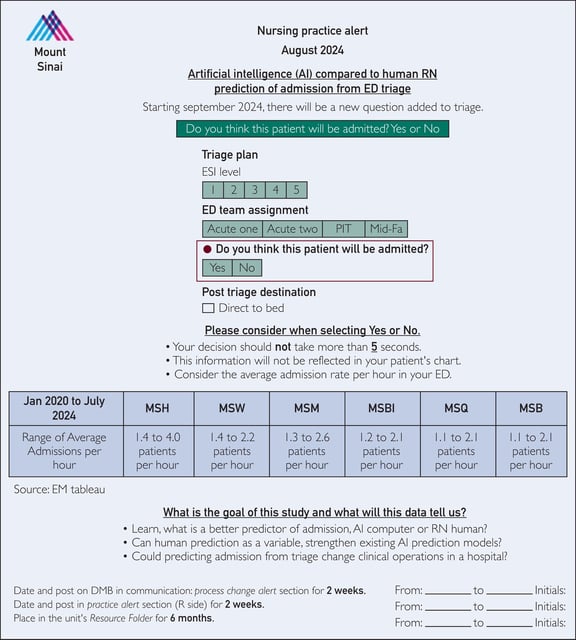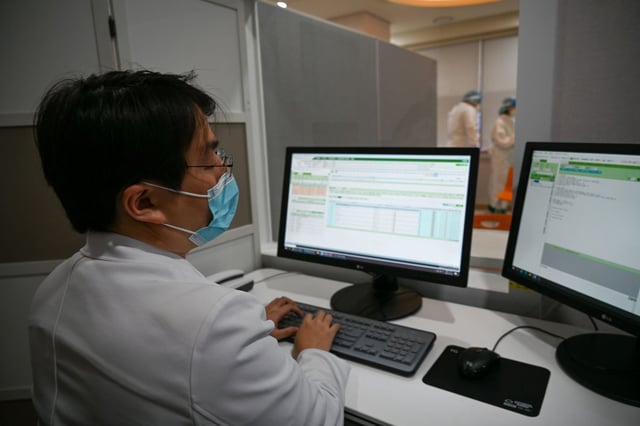Overview
- A Mount Sinai team trained the model on more than one million prior ED visits and prospectively evaluated it across seven hospitals with nearly 50,000 patient encounters.
- The AI tool demonstrated consistent accuracy across diverse urban and suburban sites, and adding nurse triage assessments did not significantly enhance its predictions.
- Published July 9 in Mayo Clinic Proceedings: Digital Health, the study represents one of the largest prospective evaluations of AI in emergency care.
- Researchers say earlier admission forecasts could help alleviate overcrowding and reduce boarding by enabling faster bed and resource planning.
- Next steps include integrating the predictions into live ED workflows to measure real-world impacts on boarding times, throughput and patient flow.


